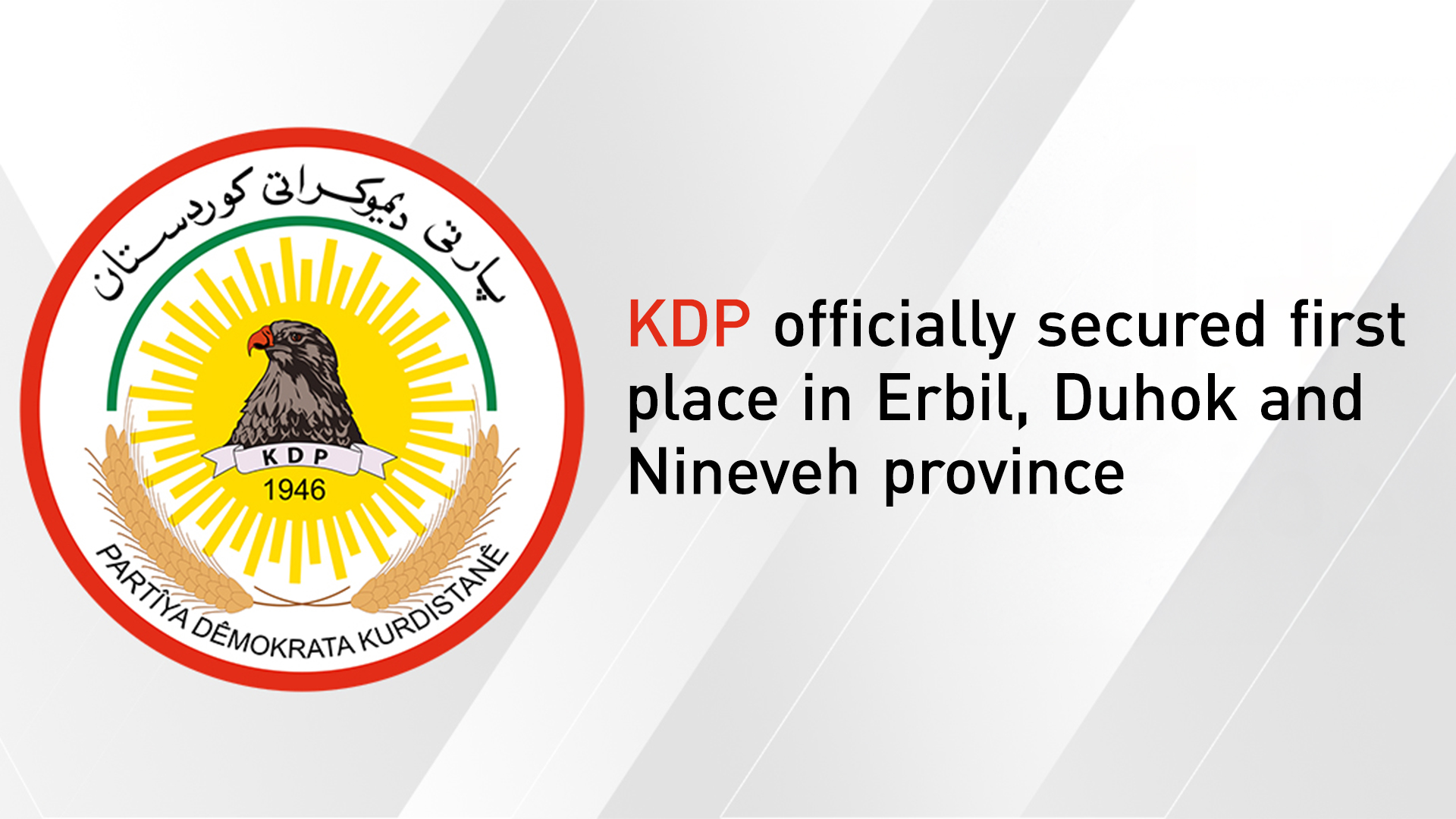Iraq's Electoral Commission Announces Final Parliamentary Election Results
Iraq's electoral commission announced final parliamentary results, confirming the KDP secured first place in Erbil (9 seats), Duhok (9), and Nineveh (5). The party's total seats across key provinces solidify its position as a major political force.

ERBIL (Kurdistan24) – Iraq's Independent High Electoral Commission has announced the final results for the Council of Representatives election, which included special voting on November 9th and the general vote on November 11th.
The head of the Commission, Judge Omar Ahmed, announced today, November 17th, "The voting and election process was conducted in accordance with international standards. Political alliances and parties can appeal the results after they are announced."
He added, "We congratulate the winning candidates and wish them success. We hope they will bring prosperity to Iraq."
In Baghdad province, the commission stated that the voter turnout was 48.86%, with 2,129,183 out of 4,359,490 eligible voters participating. Baghdad has a total of 71 seats in the Iraqi Council of Representatives, which includes 17 seats for women and two quota seats.
Results by Province:
Erbil:
Voter Turnout: 71.82%, with 800,889 out of 1,115,122 eligible voters participating.
Total Seats: 16, including 4 for women and one quota seat.
Seat Distribution:
Kurdistan Democratic Party (KDP): 9 seats
Patriotic Union of Kurdistan (PUK): 3 seats
National Stance Movement: 2 seats
New Generation Movement: 1 seats
Kaldo Ramzi Hormuz Shabo Ogna - (Christian): 1 seats
Duhok:
Voter Turnout: 77.61%, with 624,971 out of 805,269 eligible voters participating.
Total Seats: 12, including 3 for women and one quota seat.
Seat Distribution:
Kurdistan Democratic Party (KDP): 9 seats
Kurdistan Islamic Union: 2 seats
Sami Oshana Gorgis Anwiya (Christian): 1 seat
Nineveh:
Voter Turnout: 65.22%, with 1,356,152 out of 2,079,220 eligible voters participating.
Total Seats: 34, including 8 for women and three quota seats.
Seat Distribution:
Kurdistan Democratic Party (KDP): 5 seats
The Progress Party: 4 seats
Reconstruction and Development Coalition: 4 seats
Sulaimani:
Voter Turnout: 71.82%, with 800,889 out of 1,115,122 eligible voters participating.
Total Seats: 18, including 5 for women, with no quota seat.
Seat Distribution:
Patriotic Union of Kurdistan (PUK): 8 seats
National Stance Movement: 3 seats
New Generation Movement: 2 seats
Kurdistan Democratic Party (KDP): 2 seats
Kurdistan Islamic Union: 2 seats
Kurdistan Justice Group: 1seats
Kirkuk:
Voter Turnout: 65.23%, with 621,773 out of 953,267 eligible voters participating.
Total Seats: 13, including 3 for women and one quota seat.
Seat Distribution:
Patriotic Union of Kurdistan (PUK): 4 seats
The Progress Party: 3 seats
Iraqi Turkmen Front: 2 seats
Kurdistan Democratic Party (KDP): 1 seat
Baghdad:
Voter Turnout: 48.86%, with 2,129,183 out of 4,359,490 eligible voters participating.
Total Seats: 71, including 17 for women and two quota seats.
Seat Distribution:
Reconstruction and Development Coalition: 15 seats
Taqadum Party (The Progress Party): 10 seats
State of Law Coalition: 9 seats
Diyala:
The Kurdistan Democratic Party also secured one seat in Diyala province.
These figures represent only the seat counts of the main provinces in the Kurdistan Region and several key Iraqi governorates, as Iraq now enters the long constitutional process of forming a new government. According to Iraq’s legal procedures,
the current president must call the newly elected parliament to convene within 15 days of the Supreme Court’s ratification of results. The first parliamentary session—chaired by the oldest member—will elect a speaker and two deputies.
Parliament must then elect the President of Iraq, traditionally a Kurdish candidate, with a two-thirds majority. If no candidate meets the threshold, the top two contenders proceed to a second round, where a simple majority determines the winner.
Upon election, the President has 15 days to task the largest parliamentary bloc—customarily a Shia-led alliance—with forming the government. The Prime Minister-designate then has 30 days to present a full cabinet and governing program to parliament for approval by absolute majority.
If the Prime Minister-designate fails, the President must appoint a new candidate within 15 days. Because no party controls anywhere near a majority in the 329-seat legislature, political blocs will now begin lengthy coalition negotiations, a process that in previous cycles has taken months.
The final results confirm the KDP’s position as a decisive player in both federal politics and the internal dynamics of the Kurdistan Region as Iraq moves toward a new chapter of government formation and coalition-building.